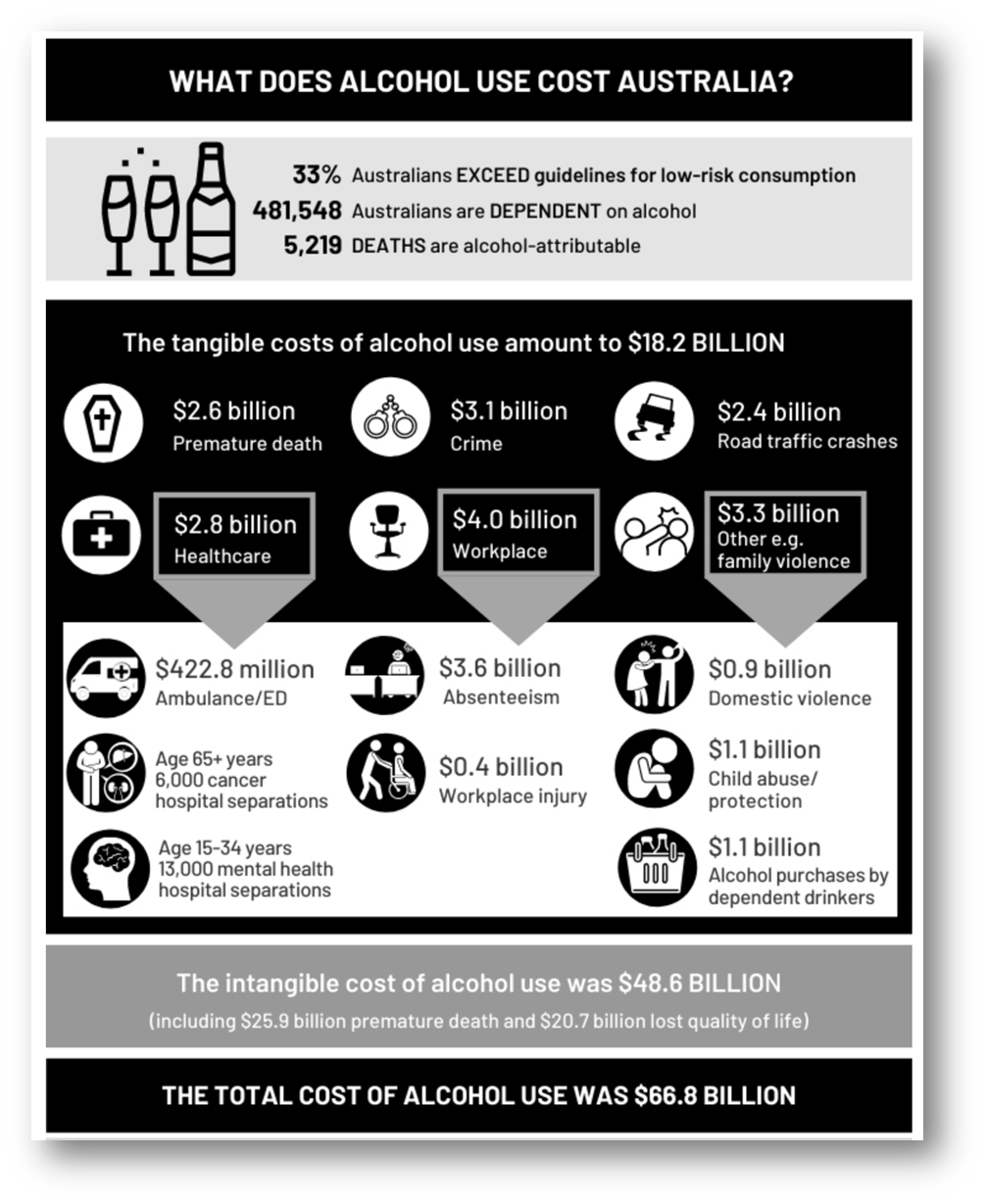While many Australians enjoy pleasures associated with drinking alcohol, we need to treat it with more caution, with alcohol consumption conservatively estimated to cost the Australian community $66.8 billion a year in health, workplace and other costs, according to research released today. This dollar figure covers some significant personal and community level harms.
Examining the Social and Economic Costs of Alcohol Use in Australia: 2017/18, published by the National Drug Research Institute (NDRI) at Curtin University in Perth, is the first national update in a decade of the costs of alcohol use. Using up-to-date methods of calculating costs and including a number of previously uncounted conditions and costs, it is substantially higher than the 2010 estimate of $14.4 billion. The main estimate includes some reference to ‘protective’ effects from alcohol, consistent with the evidence. A conservative estimate was made in our calculation of costs, as further harms where a reliable cost could not be estimated were excluded.
The research behind the updated national estimate was funded by the Australian Government Department of Health, and found that in the 2017-2018 financial year:
- alcohol was responsible for $18.2 billion in tangible costs including from: ill health; health service costs such as emergency department and hospital admissions; worker absence and occupational injuries; crime; road traffic crashes; and, alcohol purchases by those dependent on alcohol (but not by other alcohol consumers);
- alcohol was responsible for another $48.6 billion in intangible costs, which is the value of items that can’t be bought or sold, such as years of life lost from premature death, lost quality of life from living with alcohol dependence or from child abuse, and, impacts on victims of alcohol-caused crime; and,
- not included in the overall total were costs such as those associated with Fetal Alcohol Spectrum Disorder ($16 billion). There is a clear need for evidence about the prevalence of FASD to allow an accurate estimate of cost and to inform preventive and other responses.
There were several other critical areas where, due to limited data, reliable cost estimates were difficult to determine including: lost quality of life from living with someone with alcohol dependence; and, reduced workplace productivity (‘presenteeism’). Although not included in the overall total, indicative estimates suggested that these outcomes were highly likely to attract substantial costs.
“Alcohol continues to cause a significant toll through premature deaths, with 5,219 cases attributed to alcohol in 2017/18, personal suffering, reduced quality of life, and real financial costs in Australia,” Professor Allsop said.
“Nearly half-a-million Australians are dependent on alcohol, with many more drinking in a way that puts their health at risk. Importantly, any member of the community can be impacted by the drinking of others. The many adverse health effects and other consequences result in significant costs to society. Effective strategies to address alcohol related harms have the potential to substantially reduce medical costs, improve productivity, diminish crime, and lower costs to the whole community while improving community and individual wellbeing.”


